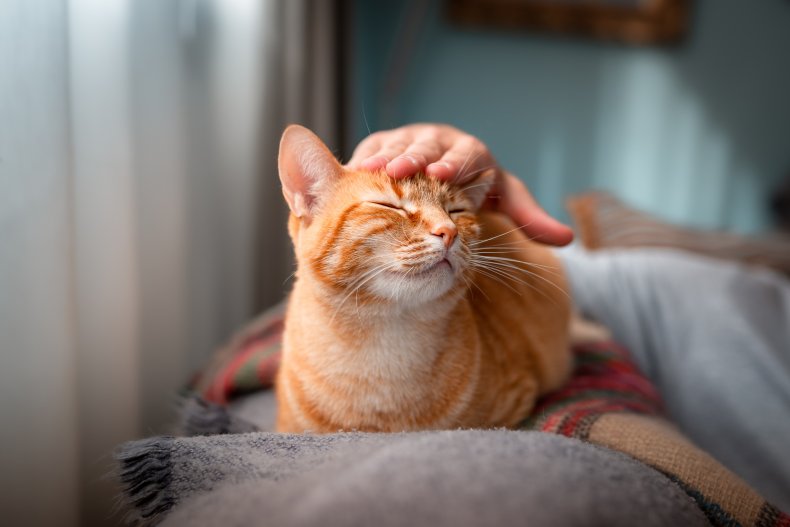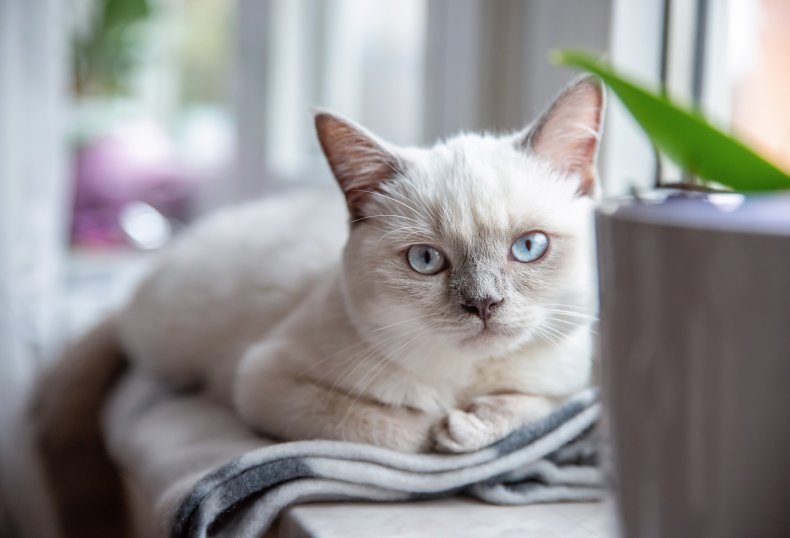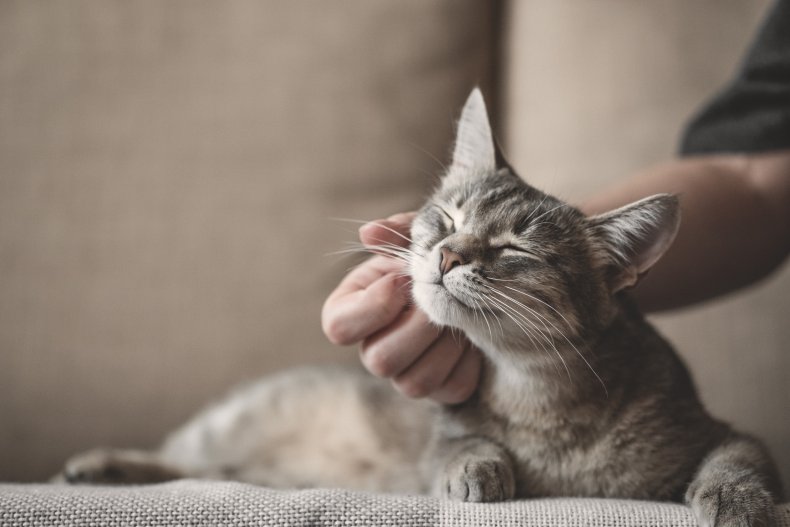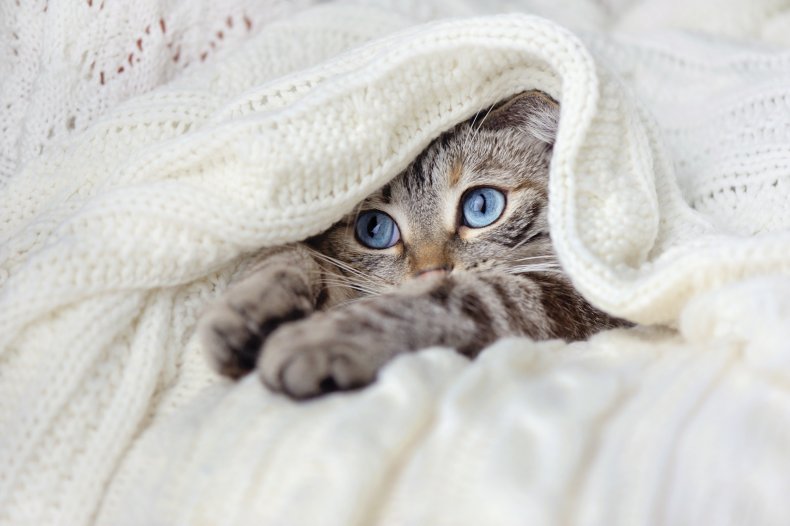Why Do Cats Purr?
Cats can be difficult to understand. Although beautiful, they are often thought of as more elusive than dogs. For some though, this is what makes living with cats all the more fulfilling.
Cat behaviour and wellness expert, Jackson Galaxy told Newsweek: "I appreciate living in the mystery with them, you know?"
One of the questions that has continued to plague many cat lovers is why do cats purr?
Although cat communication is complex, most people who share their home with a feline will agree that a purring is a good sign that their animal is happy.
The reality, however, is much more complicated.
How Do Cats Purr?
How cats are able to make this sound has been the subject of much debate within the scientific community. According to Galaxy, just as human's relationships with cats can be mysterious, the science is just as curious.

When asked about the origin of a cat's purr he explained: "There [are] competing theories about when and why."
It was previously thought that blood flowing to the inferior vena cava may be linked to purring until more research suggested the noise came from the muscles within the cat's larynx.
Scientist and cat expert at Feline Minds Dr. Mikel Delgado explained the process: "Laryngeal muscles in the throat open and close the glottis, which controls the vocal cords.
"The movements result in an air vibration that causes the purring sound. The muscular movements are likely signalled by the brain in response, usually, to pleasure and happiness."
Why Do Cats Purr?
While it typically occurs in happy cats, it's not the only time a cat will start making this vocalization.
"Purring is thought to be an intimate communication," said Lisa Stemcosky, owner of cat behavior consultancy PawLitically Correct and Certified Cat Behavior Consultant.
"Because the volume is so low, only other cats or humans near the cat can hear it."
Delgado continued: "Cats purr for a few reasons, but we think the main one is the promotion of the mother-kitten bond during nursing.

"That feel-good experience probably establishes purring as a response to comfort and pleasure in adulthood."
Cats can also purr at times of distress like when stressed, injured, or even at the end of their lives.
If you've ever found the sounds of your pet soothing, this is because they purr at a range between 25 and 150Hz. One study even suggested purring has healing properties.
As to whether this could be of any benefit to humans, Delgado explained: "There's no solid science behind this claim."
Stemcosky added: "Humans will always benefit from spending time with a purring cat, it's just good for the soul."
The reason we don't know exactly what causes cats to purr is that their sensitivity to their environment makes them hard to observe in a lab rather than their home.

What Is My Cat Trying to Tell Me?
Just hearing your cat purr is an indicator of a close bond as Stemcosky said: "It's very important, it relates to the intimacy of the relationship."
A more frantic purr, she added, is usually a sign that your cat wants something from you or another cat, like food.
"It seems like cats may use their purr to manipulate humans," Delgado agreed.
"A 2009 study suggested that cats can adjust their purr to sound more urgent to humans, especially when they want food."
Learning to understand the way your cat communicates with you requires some patience.
Delgado explained: "Cats can be subtle, and they can be quite individual in their likes and dislikes. Once you pay attention to their behavior and body language, it is not that difficult to understand your cat."
Feline body language is complex but to understand your cat you should pay attention to visual signal like the position of their ears, eyes, tail and whiskers.
Other important vocalizations to listen out for include meowing, chirping, hissing, growling and yowling.
Why Is My Cat Not Purring?
There are not always clear reasons why a cat may not purr but Delgado cited a 2017 study published in Behavioral Processes which found that cats with more behavior problems were less likely to purr, suggesting that a failure to purr may indicate that your cat is experiencing stress.
For Galaxy though, it comes down to the individual cat.
"This is all completely anecdotal but I wouldn't be worried... You know, your cat, if your cat was always like a purr machine, and suddenly they stop, then yeah, you should be concerned.
"If your cat has never purred before, and all of a sudden, is laying there and purring for no apparent reason. Again, you should probably be concerned, it's just knowing your cat."


